 The Philadelphia 11 included (Front, L-R) Arlene Elshinnawy, Susan Startzell, Lauren Murch, Nancy Major, Linda Beckman. (Back, L-R) Gerald Fennell, Mark Diener, Dennis Green, Michael Marcavage, James Cruse, Randall Beckman
The Philadelphia 11 included (Front, L-R) Arlene Elshinnawy, Susan Startzell, Lauren Murch, Nancy Major, Linda Beckman. (Back, L-R) Gerald Fennell, Mark Diener, Dennis Green, Michael Marcavage, James Cruse, Randall BeckmanA federal appeals court dismissed a civil rights complaint by 11 Philadelphia Christians, ruling their First Amendment rights were trumped by the First Amendment rights of homosexuals at the city's taxpayer-funded "Outfest" celebration in 2004. "The city has an interest in ensuring that a permit-holder can use the permit for the purpose for which it was obtained," this week's opinion from the 3rd U.S. Circuit Court of Appeals said. "This interest necessarily includes the right of police officers to prevent counter-protestors from disrupting or interfering with the message of the permit-holder."The decision upheld a lower court's dismissal of the civil action against the city of Philadelphia and its police filed by the "Philadelphia 11," as they have come to be known.Ted Hoppe, a lawyer allied with the Alliance Defense Fund, had argued in the appeal that speech "cannot be silenced simply because another person or group does not agree with it. City officials must be held accountable for their decision to violate the First Amendment rights of Christians who wanted nothing more than to engage in peaceful assembly on a public street."Marcavage, founder of Repent America and organizer of the protest, said the lawyers were reviewing the appellate ruling and deciding whether there are further open doors for the plaintiffs.Members of the "Philadelphia 11" were arrested Oct. 10, 2004, after quoting the Bible and expressing their views against homosexual behavior on a public street during "OutFest," a publicly funded celebration of homosexuality.The protesters were jailed overnight, but a judge later dismissed any criminal counts as having no basis in fact. The individuals then filed the damage lawsuit against the city.U.S. District Judge Lawrence Stengel had concluded in dismissing the civil rights claim that a "permit" granted by the city to the homosexuals allowed police to silence the Christian activists' message on public streets."It is without question that Judge Stengel's decision has set a precedent to eliminate the First Amendment rights of others by citing that a 'permitting scheme' can be used by police and event organizers to 'exclude persons expressing contrary messages' in public areas and at public events," Marcavage said earlier.Marcavage told WND today the issues of speech rights should have been left to a jury."It's very interesting the court affirmed our rights to be at Outfest, but it should have been left to a jury to decide whether or not our presence was disruptive," he said.He said the appellate opinion cited as fact issues a jury should have been allowed to determine, since the 11 were charged with both felonies and misdemeanors in the original criminal case – but not being a disruption, which was cited in the ruling.A video of the arrest has been posted on YouTube:
According to Repent America, the Christians on that day "were confronted by a militant mob of homosexuals known as the 'Pink Angels' who blew loud whistles and carried large pink signs in front of them to block their message and access to the event, while others screamed obscenities." "The Philadelphia police, under the direction of Chief Inspector James Tiano, the city's 'police liaison to the gay and lesbian community,' refused to take any action as the Christians were continuously followed, obstructed and harassed, even though they respectfully cooperated with police, obeying orders to move, short of being directed out of the event," the group said.The Philadelphia 11 spent 21 hours in jail and faced criminal counts that could have resulted in prison terms of 47 years and $90,000 fines before the counts were dropped.The civil rights complaint then followed."While, in its decision, the U.S. Court of Appeals for the 3rd Circuit did ultimately side with the city of Philadelphia, it did make some important rulings which should serve to support the rights of Christians to speak in the public square. In its decision, the appeals court rejected U.S. District Court Judge Lawrence F. Stengel's decision from earlier this year in which he ruled that the Philadelphia 11 should have been prohibited from engaging in their constitutional rights on the public streets and sidewalks because 'once the City issued a permit to Philly Pride for OutFest, it was empowered to enforce the permit by excluding persons expressing contrary messages,'" Repent America said.Repent America said the appeals court found that despite the fact that the event organizers had a permit, the Philadelphia 11 had a constitutionally protected right to be present on the public streets and sidewalks within the event area and convey their message.The court's justification for supporting police actions against the Christians was based on "the court's perception that the Philadelphia 11 were 'disrupting the event,'" the organization said. "The court came to this conclusion even though the Christians were not charged, arrested or even threatened with arrest for being 'disruptive.'"Hoppe said that result is "concerning.""We believe that a review of the video footage of the event clearly shows that the Philly 11 went out of their way to be cooperative and not be disruptive themselves. The only disruption that occurred, if any, was due to the crowd's reaction to the message that the Philly 11 was conveying," Hoppe said."It is encouraging that the court affirmed the rights of Christians to go into the public square and engage in free speech activities. However, it does seem somewhat contradictory to say that, on the one had the Philly 11 had a constitutionally protected right to be present at the event and to speak, but then to also say that if the crowd does not like their message, the Philly 11 can be removed."
As in the days of Noah...
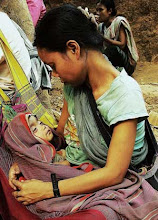
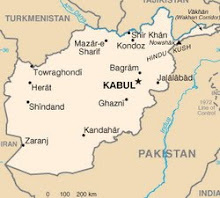
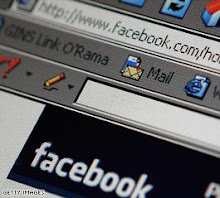

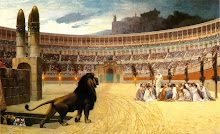
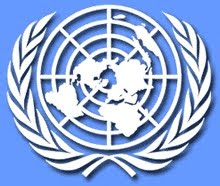



















.bmp)
No comments:
Post a Comment